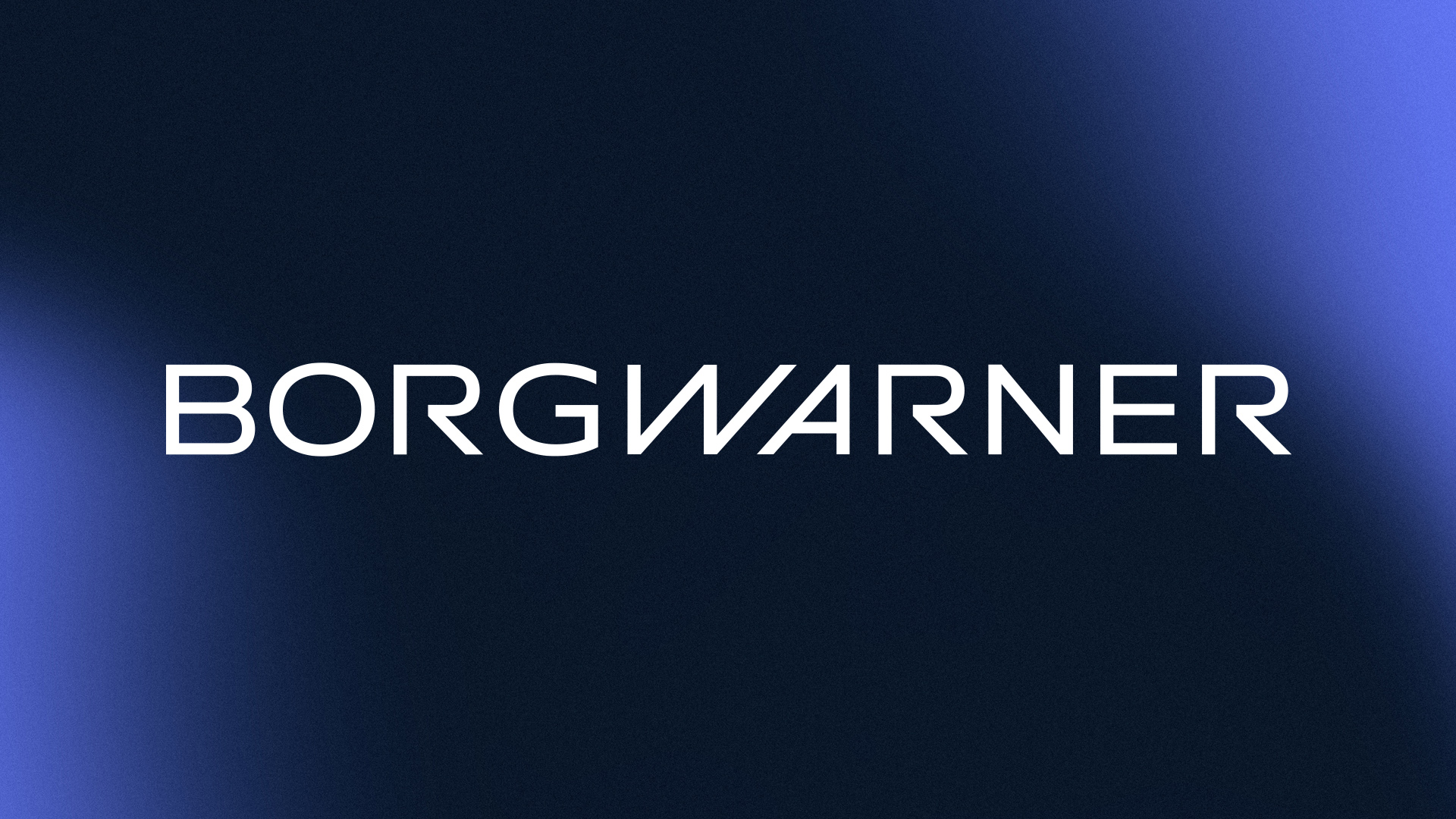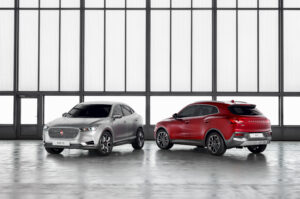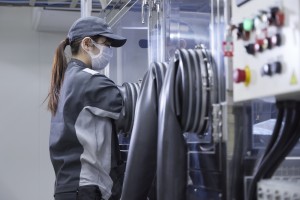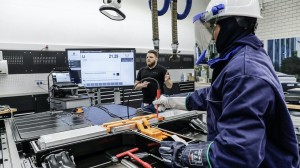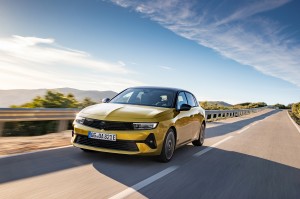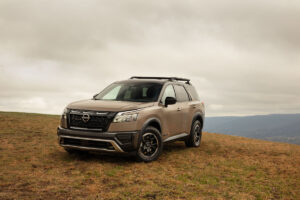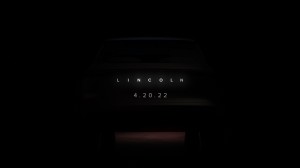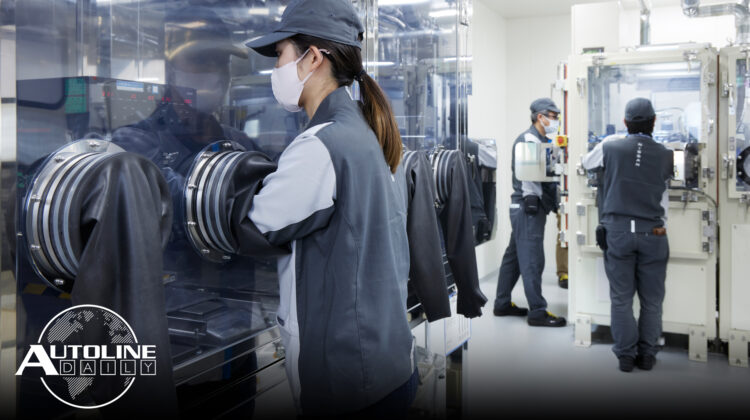
Listen to “AD #3300 – Ukrainian Auto Supplier Defies Russia; Nissan To Make Solid State Batteries In-House; Taycan Service Interval = 2 Years” on Spreaker.
Follow us on social media:
Runtime: 9:50
0:08 Ukrainian Auto Supplier Defies Russian Missiles
0:55 China Car Market Drops Sharply
1:34 Tesla Sales Soar in China
2:08 Borgward Files for Bankruptcy
3:06 BMW, VW Say Chip Shortage Drags On
3:36 Nissan To Make Solid State Batteries In-House
4:10 Porsche Taycan Service Interval Is 2 Years
5:51 Opel Astra Gets Special Air Purifier
7:20 Mercedes Makes CO2 Commitment
7:57 Nissan Beefs Up Pathfinder
8:36 Lincoln Teases Its First BEV
Visit our sponsors to thank them for their support of Autoline Daily: Bridgestone, Intrepid Control Systems and Schaeffler.
This is Autoline Daily, the show dedicated to enthusiasts of the global automotive industry.
UKRAINIAN AUTO SUPPLIER DEFIES RUSSIAN MISSILES
Even though they have to stop production when Russia launches missile attacks, the German auto supplier Leoni continues to make wiring harnesses in Ukraine. The Wall Street Journal reports it takes 16 minutes for a missile launched from Russia to hit western Ukraine. So when air raid sirens go off, that’s enough time for the workers in the plant to jump on busses and go to a nearby bomb shelter. When the war broke out, Leoni was going to leave Ukraine, but workers in the plant demanded to keep working in defiance against Russia. Sometimes they have to evacuate several times a day because of missile strikes, but the plant is back to working two shifts a day.
CHINA CAR MARKET DROPS SHARPLY
Car sales in China fell nearly 12% last month because of chip shortages and severe lockdowns to fight Covid. Some companies like NIO and Tesla, have stopped production completely. Others, like CATL and General Motors, have kept production going, but only by having workers sleep and live at their factories. While overall sales were down, sales of Chinese indigenous brands actually went up by double digits. They now have 48% of the Chinese retail market, up 11 percentage points from a year ago.
TESLA SALES SOAR IN CHINA
Before Tesla had to shut down, it was rocketing ahead in China. Last month it wholesaled 65,814 cars in China. That was up 85% from a year ago. And almost none of them were exported. Only 60 Model Ys were shipped out of the country. And that put Tesla ahead of everyone else in sales of electric cars in China for the month, even ahead of that cheap little Wuling Honguang Mini EV.
BORGWARD FILES FOR BANKRUPTCY
We now seem to be at an inflection point in the Chinese auto industry. Acura is going to drop out of the market due to poor sales. And Borgward just filed for bankruptcy. Borgward was a former German car brand that went out of business half a century ago. Two Chinese companies, including BAIC, tried to revive it but couldn’t pull it off. China has too many car companies and while the Chinese car market is strong and will continue to grow, we may be reaching the point where a big shakeout will drive the weak ones out of business.
BMW, VW SAY CHIP SHORTAGE DRAGS ON
German automakers are very pessimistic about the chip shortage ending anytime soon. BMW CEO Oliver Zipse says it’s going to last into 2023. But he’s more optimistic than Volkswagen’s CFO, who says the shortage won’t be over until 2024. Both executives say supplies will start to improve by the end of the year but it won’t be enough to meet demand.
NISSAN TO MAKE SOLID STATE BATTERIES IN-HOUSE
Nissan says solid-state batteries can significantly reduce battery costs and it wants to build them in-house. So, it just opened a prototype production facility in Japan to study the manufacturing process and is aiming to bring them to the market by 2028. Nissan believes it can cut the cost to $75 per kWh by then and eventually down to $65 per kWh. That would easily put EVs at the same cost level as gas-powered cars.
PORSCHE TAYCAN SERVICE INTERVAL IS 2 YEARS
We’ve all heard that EVs require less maintenance than ICE vehicles, but here’s some numbers you can put behind that statement. The standard service interval for the Porsche Taycan is two years or 30,000 kilometers or over 18,600 miles. A typical service interval for an ICE vehicle is 7,500 miles, so the Taycan goes more than twice as long before it needs work. And Porsche says when it does need work, the scope of the maintenance, i.e. how many tasks have to be performed, is reduced by around 30%. Porsche also tried to make service easier when it is required. For example, the battery pack and its modules are serviceable and diagnostic tools are able to identify bad cells. But Porsche won’t let just anyone work on its electric vehicles, even its own trained and certified technicians. Just changing the tires requires a special qualification and that person has to be watched over by a higher-level technician. There are three qualification levels and the highest one is for people who actually work on the high-voltage batteries. Work like this will be carried out at dedicated high-voltage support centers, which will get the vehicles from the dealer where the vehicle was dropped off. If getting to one of the support centers is not feasible, a “flying doctor” will be sent in to take care of the repair.
OPEL ASTRA GETS SPECIAL AIR PURIFIER
We’re starting to see those clean air systems in production cars that practically everyone was developing at the beginning of COVID lockdowns. The Opel Astra will now be available with the company’s Intelli-Air system. It combines air and particulate filters with an air quality monitoring system. If the air becomes stale in the car, the system automatically draws in fresh air or if the outside air is dirty it will close off the vents. And a happy little emoji with a smiley face will let you know everything is OK. Opel doesn’t say how the system performs compared to a vehicle with just a high quality particulate filter, but did say it made perceived quality a priority during development of the new-gen Astra.
MERCEDES MAKES CO2 COMMITMENT
Mercedes is jumping on the CO2 reduction bandwagon. It says it plans to cut lifetime CO2 emissions in half per vehicle by 2030, compared to 2020 levels. And it’s going to do it pretty much the same way everyone else is. It starts by electrifying the fleet. Mercedes plans to be all-electric in some markets by the end of the decade. But it also includes using renewable materials and energy in vehicles as well as in charging, improving battery technology and recycling batteries.
NISSAN BEEFS UP PATHFINDER
Nissan is coming out with a more off-road version of the Pathfinder. Called Rock Creek, the trim only comes in four-wheel drive, features an off-road tuned suspension with a 5/8-inch lift kit and 18-inch beadlock wheels. And if you fill it up with premium fuel, horsepower and torque are increased compared to standard models, thanks to revised fuel mapping. Other features include a unique front fascia, Rock Creek badging and orange contrast stitching in the interior. Nissan didn’t reveal pricing but it goes on sale in late summer.
LINCOLN TEASES ITS FIRST BEV
Lincoln put out this short teaser video of a BEV concept it will unveil on April 20th. As you can see, it really doesn’t give a great idea of what the vehicle will look like but Lincoln says it does serve as an inspiration for its future EVs. No other details were provided but we’ll learn more in a few weeks.
MARK REUSS ON AUTOLINE AFTER HOURS
Don’t forget we have Mark Reuss, the president of General Motors joining us for Autoline After Hours on Thursday. And the whole show will be about GM’s EV strategy. So if you’ve got questions you’d like us to ask Mark, post them in the comments section or send an email to viewermail@autoline.tv. And tomorrow is the cutoff day for us to take your questions.
But that’s it for today, thanks for watching.
Thanks to our partner for embedding Autoline Daily on its website: WardsAuto.com
Seamus and Sean McElroy cover the latest news in the automotive industry for Autoline Daily.



